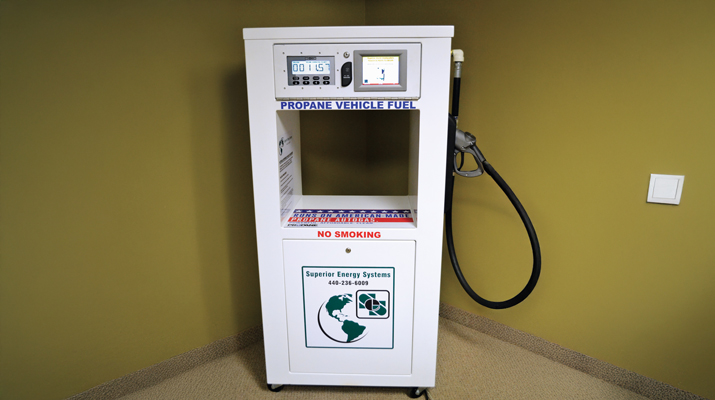Artificial intelligence: Pros and cons for propane
A year ago, I used an artificial intelligence (AI) tool to write my July 2023 column.
In November 2023, I explored AI and machine learning applications for propane marketers, anticipating their imminent implementation.
Now, we’re in the process of deploying these tools, including a new customer communication platform. Our experience has illuminated both the strengths and challenges of AI tools.
Benefits
1. Enhanced efficiency: Previously, our customer service representatives (CSRs) juggled multiple applications:
- CRM propane software: Managed delivery tickets, work orders, payments and communications.
- Email software: Handled customer emails and messages.
- Voice over Internet protocol (VOIP) phone software: Facilitated calls and recordings.
- Chat: Managed website-initiated chats.
- Social media: Handled customer interactions across platforms.
With our new tool, CSRs now only require the CRM software and the integrated tool. This consolidation of voice, email, text, chat and social media into one application is invaluable. It reduces our open software windows from more than five to just two. The tool’s ticketing system tracks metrics such as first call resolution, response time and closure time across all communication channels, providing CSRs with a unified view. Studies suggest CSRs spend up to 25 percent of their time navigating multiple screens for customer information.
2. Improved accuracy: AI-powered assistance reduces errors. Despite our well-documented processes and standard terms, variations in policies based on specific customer circumstances and difficulty in finding and identifying the answers can lead to mistakes. We anticipate that centralizing information and leveraging AI will improve accuracy and consistency in customer interactions.
3. Enhanced productivity: Our CSRs can handle more inquiries efficiently. Fewer applications should mean less time searching for and entering information post-call. Real-time AI guidance and automated responses to common queries (e.g., pricing inquiries) could potentially reduce customer communication handling times by up to 50 percent.
4. Increased CSR satisfaction: Early indications suggest consolidating multiple platforms into one will shorten training and ramp-up times. It also aims to reduce time spent on routine tasks. We believe this may lead to higher CSR satisfaction and improved retention rates as a result.
5. Improved customer experience: Reduced call handling times and increased efficiency should lead to shorter customer wait times, reducing dropped calls and chats. Enhanced response accuracy and consistency will also mitigate customer escalations and associated costs, ultimately enhancing customer retention.
Costs and limitations
1. Financial considerations: Implementing our new tool replaces current VOIP and chat platforms but still increases per-seat communication costs by about $1,000 annually. While improved customer retention may justify this expense, directly linking tool adoption to retention metrics remains complex, especially if there are multiple concurrent initiatives and associated expenses. As a result, we prefer to focus on reducing hard costs and plan to leave an open CSR position unfilled as a result of the efficiencies of our new tool.
2. Challenges with knowledge base development: AI tools require robust knowledge bases. Unlike popular consumer AI tools using internet-based knowledge, building a business-specific knowledge base is more demanding. Implementing the new tool has exposed gaps and inconsistencies that will take effort to address. Establishing an accurate knowledge base is a time-intensive process, taking weeks or even months. Propane marketers with less comprehensive knowledge bases may find AI-assisted tools offer limited benefits unless they invest in filling those gaps.
In sum
Overall, we are optimistic about using an AI-supported customer communication tool. It promises enhanced customer service and greater CSR satisfaction, and it challenges us to address unexpected gaps and inconsistencies in our knowledge base, which are more significant than anticipated.
Christopher Caywood is a co-owner of Caywood Propane Gas Inc. Contact him at chris@caywoodpropane.com.
Featured homepage image: ipopba/iStock / Getty Images Plus/Getty Images
















